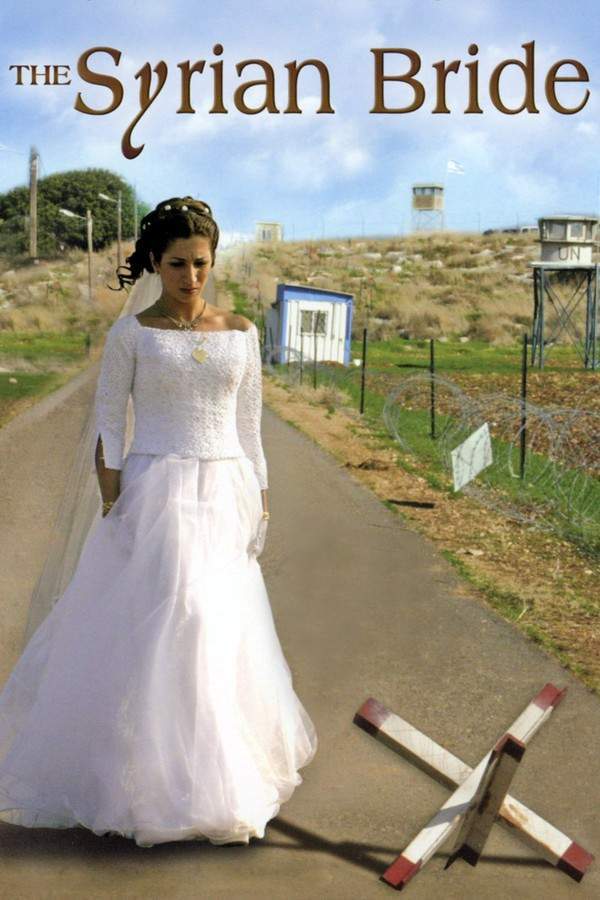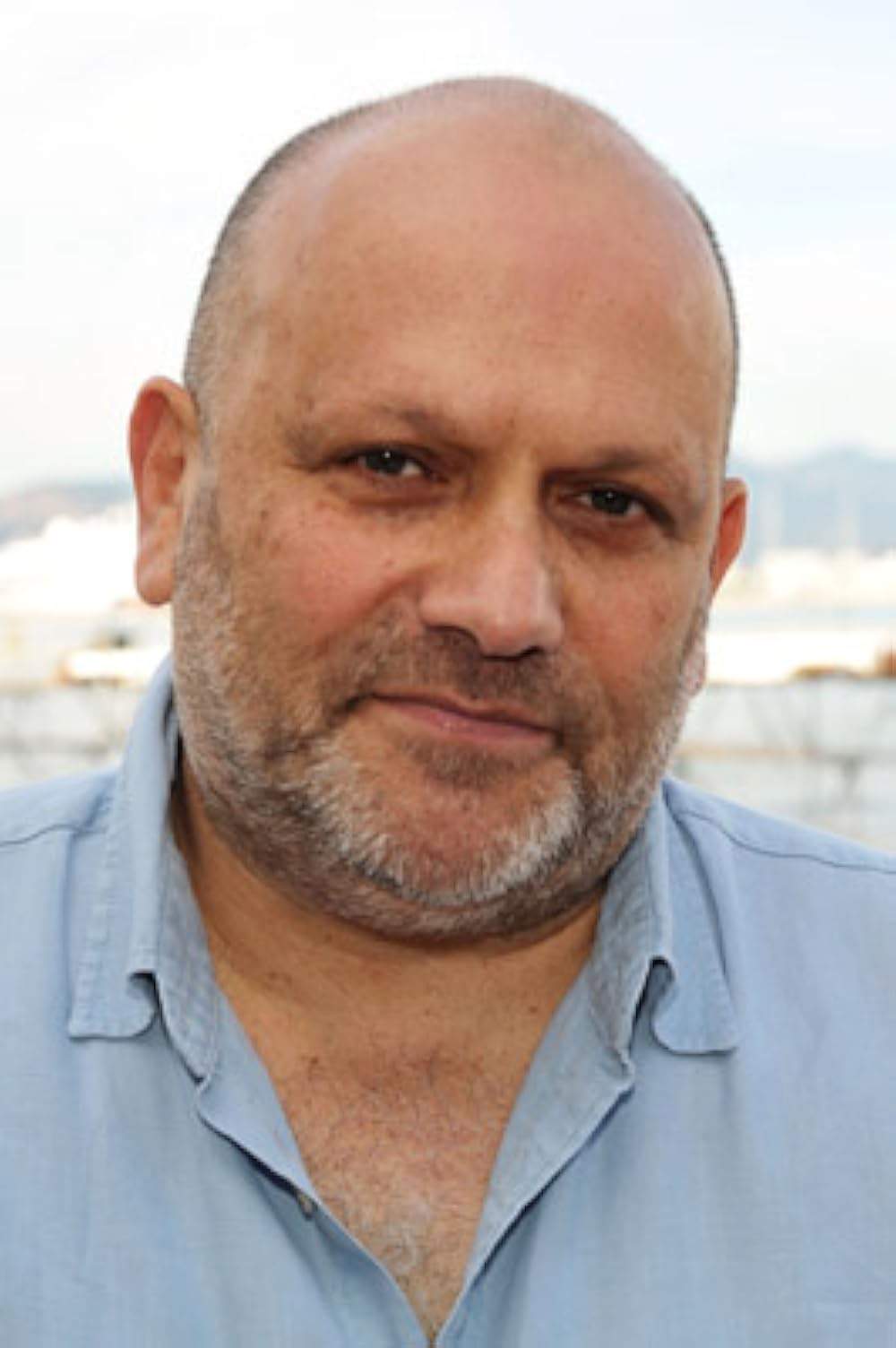
The Syrian Bride 2005
Directed by

Eran Riklis
Made by

Koch Lorber Films
Test your knowledge of The Syrian Bride with our quiz!
The Syrian Bride Plot Summary
Read the complete plot summary and ending explained for The Syrian Bride (2005). From turning points to emotional moments, uncover what really happened and why it matters.
Set in the summer of 2000, Mona (played by Clara Khoury), a vibrant young Druze woman residing in Majdal Shams of the Golan Heights, is on the verge of marrying a well-known Syrian actor. The backdrop of her story is marked by the recent hostilities between Israel and Syria, leading to the establishment of a UN-controlled zone in the Golan Heights. The process for Mona to leave this tumultuous area has been painstakingly slow, taking six months to secure permission from the Israeli administration. A significant decision looms ahead, as once she crosses into Syria, there will be no chance of returning home to her family.
Mona feels a tinge of reluctance, as the man she is to marry remains a stranger to her. Meanwhile, her father Hammed (portrayed by Makram Khoury) stands firmly in favor of reunifying with Syria. Recently released on bail from an Israeli prison for his political beliefs, he is held in high regard by the village elders. However, tension brews when news breaks that his son Hattem (played by Eyad Sheety), who has taken a different path by marrying Evelyna (performed by Evelyn Kaplun), a Russian doctor, is returning for his sister’s wedding. The elders warn him that should he permit Hattem to attend, he too will be ostracized.
Mona’s sister Amal (featured by Hiam Abbass) navigates her own set of challenges; locked in an unhappy marriage with two adolescent daughters, she exhibits a free-spirited nature, opting for trousers—a symbol of her defiance against conservative customs. Her aspirations to become a social worker highlight her desire for independence. Amal encourages her elder daughter not to abandon her education, despite the pressures that loom from their community. This inclination reveals the strength of Amal’s character and her commitment to gender equality.
Contrasting with the family’s struggles is the second brother, Marwan (played by Ashraf Barhom), known for his dubious dealings in Italy and questionable romantic exploits. His lifestyle draws little criticism, in stark contrast to Hattem’s reception, which is laden with familial scrutiny.
As the wedding ceremony concludes, Mona is escorted towards the border, but bureaucratic obstacles arise. The Israeli government has abruptly decided to stamp Golan residents’ passports as proof of exit from Israel, a move that Syria interprets as a direct acknowledgment of Israeli territorial claims. This creates a thorny situation, as the Syrian authorities insist they still consider the Golan a part of Syria, thus rejecting any such stamp.
The tensions escalate when Jeanne, the UN liaison officer, tirelessly mediates between the parties involved. Anxiety builds as she must convince the Israeli official, who initially imposed the stamp, to rescind it. Just when it seems a resolution is in sight, new complications arise from the Syrian side, casting a shadow over the wedding plans.
Ultimately, faced with the prospect of postponement—a scenario steeped in superstition—Mona takes charge of her destiny. In a powerful moment, she strides purposefully toward the Syrian border, her resolve unshakeable. Meanwhile, Amal’s face radiates determination as she steps away from the crowd, embodying the hope of breaking free from societal constraints and pursuing her own dreams.
The Syrian Bride Timeline
Follow the complete movie timeline of The Syrian Bride (2005) with every major event in chronological order. Great for understanding complex plots and story progression.
Mona's Decision
In the summer of 2000, Mona, a young Druze woman from Majdal Shams, faces a significant decision about her future. She is on the verge of marrying a well-known Syrian actor, but the uncertainty lingers as they remain strangers to each other.
UN-Controlled Zone
The backdrop of Mona’s life is the geopolitical tension resulting from hostilities between Israel and Syria. This situation has led to the establishment of a UN-controlled zone in the Golan Heights, complicating her journey to escape the troubled region.
Permission to Leave
Over the span of six months, Mona has worked tirelessly to secure permission from the Israeli administration to leave for Syria. This bureaucratic struggle amplifies her feelings of reluctance and highlights the urgency of her situation.
Hammed's Political Stance
Mona's father, Hammed, a man with strong political beliefs, supports his daughter’s marriage as a way to reunify with Syria. Recently released on bail from an Israeli prison, Hammed commands respect among the village elders, who echo his sentiments.
Hattem's Return
Tension rises in the family when news arrives that Hammed's son, Hattem, is coming back for Mona's wedding. Hattem's marriage to Evelyna, a Russian doctor, puts him at odds with the traditional expectations of the family.
Amal's Struggles
Mona's sister, Amal, grapples with her own dissatisfaction, trapped in an unhappy marriage. She defies community norms by wearing trousers and aspires to be a social worker, a position representing her fight for gender equality.
Generational Conflict
Amal makes a concerted effort to encourage her daughters to prioritize their education amidst societal pressures. This reflects Amal's determination to foster independence and challenge the restrictive customs imposed on women.
Marwan's Contrast
The family dynamic is highlighted by Marwan, Mona's second brother, whose reckless behavior and questionable lifestyle in Italy elicit little criticism. His lifestyle starkly contrasts with the scrutiny faced by Hattem due to his own choices.
Wedding Ceremony
As Mona's wedding day unfolds, family and community gather to celebrate. However, this joyous occasion is fraught with complications that arise as Mona is escorted toward the border, unveiling bureaucratic hurdles.
Bureaucratic Obstacles
Unexpectedly, the Israeli government issues a new requirement that Golan residents' passports must be stamped to exit Israel. This decision is met with resistance as the Syrian authorities refuse to acknowledge such stamps.
UN Mediation
Jeanne, the UN liaison officer, steps in to mediate the situation between the warring parties. She works tirelessly to convince the Israeli official to rescind the stamp requirement in hopes of resolving the escalating tensions.
Anxiety Builds
As the wedding plans hang in the balance, anxiety fills the air. Complications arise from the Syrian side, contributing to a sense of urgency and uncertainty as everyone focuses on Mona's impending departure.
Mona Takes Charge
Determined to take control of her destiny, Mona makes a bold decision while standing at the border. She steps forward resolutely, showcasing her strength amid the chaos surrounding her wedding.
Amal's Support
As Mona takes her impactful step towards the border, her sister Amal conveys her support through her own act of defiance. Amal's character embodies hope, signifying the desire to break free from societal constraints and pursue individual dreams.
The Syrian Bride Characters
Explore all characters from The Syrian Bride (2005). Get detailed profiles with their roles, arcs, and key relationships explained.
Mona (Clara Khoury)
Mona is a vibrant young Druze woman on the verge of significant change in her life. She faces the difficult choice of leaving her family and home for an uncertain future with a stranger. Throughout the film, Mona embodies hope and determination as she navigates the challenges posed by her culture and the political landscape.
Hammed (Makram Khoury)
Hammed is Mona's father, a strong advocate for reunification with Syria who grapples with his own past experiences. Recently released from prison, he carries the weight of political conviction and familial loyalty. His character portrays the complexities of fatherhood amidst societal changes and political conflicts.
Amal (Hiam Abbass)
Amal is Mona's sister, characterized by her free-spirited nature and resolve to seek independence. Stuck in an unhappy marriage, she fights against conservative norms, aiming to empower her daughters. Amal's journey illustrates the challenges faced when pursuing personal aspirations in a restrictive environment.
Hattem (Eyad Sheety)
Hattem is Mona's brother, whose choices put him at odds with family expectations. His marriage to a Russian woman brings additional layers of complexity to the family's dynamics, highlighting the differing paths siblings can take. Hattem navigates societal scrutiny and familial loyalty as he returns for the wedding.
The Syrian Bride Settings
Learn where and when The Syrian Bride (2005) takes place. Explore the film’s settings, era, and how they shape the narrative.
Time period
Summer of 2000
The summer of 2000 was a period marked by escalating tensions in the Middle East, particularly relating to the Israeli-Syrian conflict. It was a time of significant political strain, influencing personal choices and relationships, as exemplified by Mona's impending marriage. This era highlights the struggles faced by individuals in divided territories, caught between national loyalty and personal freedom.
Location
Majdal Shams, Golan Heights, Syria
Majdal Shams is a vibrant Druze town located in the Golan Heights, characterized by its scenic views and rich cultural heritage. The area has a complex historical backdrop due to tensions and conflicts between Israel and Syria. Known for its breathtaking landscapes, Majdal Shams is also a focal point for conversations around identity and belonging amidst the political turmoil.
The Syrian Bride Themes
Discover the main themes in The Syrian Bride (2005). Analyze the deeper meanings, emotional layers, and social commentary behind the film.
💔
Separation
Separation is a central theme in 'The Syrian Bride,' exploring the emotional and physical divides caused by political borders. Mona's impending marriage signifies not just a personal transition but the painful reality of leaving her homeland forever. The film compellingly illustrates the struggles individuals face in reconciling love and family with political constraints.
👩👧👦
Family Bonds
Family bonds underpin the narrative, showcasing the dynamics and conflicts within Mona's family. Each character faces their own challenges, be it through political beliefs or personal aspirations. The film highlights the strength and resilience found within familial relationships, serving as a source of support amid external pressures.
🌺
Empowerment
Empowerment emerges as a powerful theme, particularly through the character of Amal. Her defiance against societal expectations and commitment to her daughters' education represent a quest for autonomy. The film underscores the importance of women breaking free from traditional roles and fighting for their rights in a conservative society.

Coming soon on iOS and Android
The Plot Explained Mobile App
From blockbusters to hidden gems — dive into movie stories anytime, anywhere. Save your favorites, discover plots faster, and never miss a twist again.
Sign up to be the first to know when we launch. Your email stays private — always.
The Syrian Bride Spoiler-Free Summary
Discover the spoiler-free summary of The Syrian Bride (2005). Get a concise overview without any spoilers.
In the summer of 2000 the Golan Heights hums with a fragile mix of everyday life and lingering wartime shadows. In the Israeli‑controlled village of Majdal Shams, a young Druze woman, Mona, prepares for a marriage that will carry her across a contested border into Syria. The ceremony is less a celebration of love than a crossroads of identity, where personal desire meets the weight of communal expectation, and the landscape itself seems to hold its breath.
Her father, Hammed, a former political prisoner respected by the village elders, embodies the yearning for a return to a homeland that many consider a mythic promise. He watches his children navigate divergent paths: Hattem, who has built a life with his Russian doctor wife Evelyna, arrives home with memories of exile and a quiet defiance that unsettles traditional notions of loyalty; Amal, caught in an unhappy marriage while raising two teenage daughters, clings to her own aspirations of education and independence, often expressed through simple acts of rebellion like wearing trousers; and Marwan, who has spent years in Italy, returns with a reputation for shady dealings that the family tolerates with an almost casual indifference.
The household buzzes with the arrival of siblings, each carrying the weight of past migrations and future uncertainties. Their conversations reveal a tapestry of hopes and fears, from whispered doubts about marrying a stranger to quiet prayers for a smoother passage across an invisible yet heavily guarded line. The ever‑present UN liaison, Jeanne, drifts in the background, a reminder that even the most intimate moments are tangled in diplomatic protocols.
Against this backdrop, the film moves with a restrained, lyrical tone, letting the stark desert vistas and the clatter of everyday rituals speak to the larger political tensions. The atmosphere balances tenderness with a simmering anxiety, inviting the viewer to contemplate what it means to belong, to sacrifice, and to step into a future that may never circle back to the home left behind.
Can’t find your movie? Request a summary here.
Movies with Similar Twists and Themes
Uncover films that echo the narrative beats, emotional arcs, or dramatic twists of the one you're exploring. These recommendations are handpicked based on story depth, thematic resonance, and spoiler-worthy moments — perfect for fans who crave more of the same intrigue.
Featured on this page

What's After the Movie?
Not sure whether to stay after the credits? Find out!
Explore Our Movie Platform
New Movie Releases (2026)
Famous Movie Actors
Top Film Production Studios
Movie Plot Summaries & Endings
Major Movie Awards & Winners
Best Concert Films & Music Documentaries
Movie Collections and Curated Lists
© 2026 What's After the Movie. All rights reserved.









